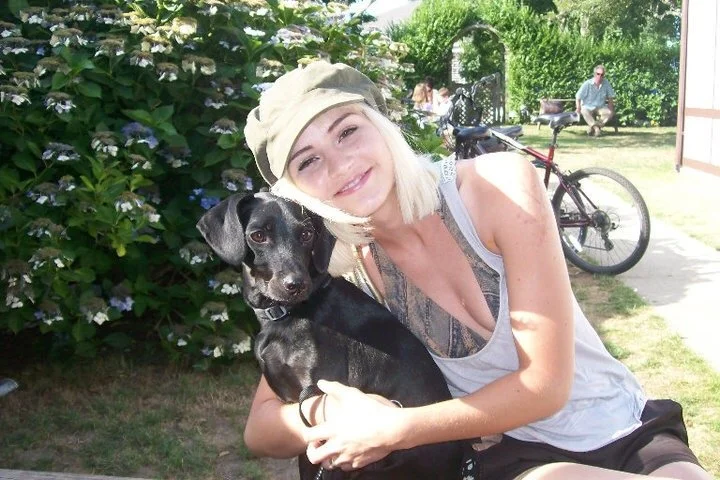How to Survive an Emotional Avalanche
Note: This article was originally published on January 24, 2019 and was revised on January 25, 2022. Asche (said ‘Asha’) has since passed.
Friday night, while I was eating dinner, my dog Asche cried out in pain.
I checked her out for injuries, but couldn’t find anything out of the ordinary. Seemingly, nothing had happened. But she spent the rest of the night hiding under the bed, shaking.
I tried to coax her out, but she insisted on remaining glued to the floor, crouched in darkness. Not even a treat could bribe her to move, and this is a dog that lives for food.
I spent some time reaching under the bed, petting her and talking to her, but at some point, I had to decide how long I wanted to spend laying on the floor next to her, and when I would continue on with my night.
My dog has taught me so many lessons, but the most unexpected has been showing me what I look like when I get down and stay down—and what it’s like for those who try to help me.
Looking into her eyes that night I saw myself when I have been in a bad mood. I saw myself when I used to feel such severe anxiety that I couldn’t get out of bed…when my partner Alexander would come in and ask, "What can I do for you?" and had no idea what to tell him.
I now understand the pressure that I put on him to find a solution I didn’t even help him look for, because I let myself become frozen by my internal pain—when I chose silence over communication.
When I looked at my dog Asche under the bed that night, all I wanted was for her to tell me what was wrong. To tell me what hurt and what she needed, so that I knew what to do.
I was reaching into the darkness toward her to help her out, and she was choosing to stay there. I was breaking the silence between us, and she was perpetuating it.
In non-communication, we were both suffering.
This is the same suffering we impose upon ourselves and others when we choose to not communicate.
Because I lived with depression and anxiety for 22 years, I know what the weight of that suffering feels like.
It’s like being caught in an avalanche.
I know how hard it is to speak your truth when you fear that if you open your mouth you’ll die of asphyxiation. I know how hard it is to reach your own hand out for help when you’re trapped beneath the snow. And the longer you wait, the further below you’re buried.
Now, I make the choice not to bury myself deeper, to reach my hand out for help when someone crouches next to the bed, peering in to see what’s wrong.
True communication isn’t easy, but it’s a lifeline, out of not only depression and anxiety, but transitioning out of bad moods brought on by countless negative emotions—frustration, anger, jealousy, fear, pain…
It begins with the choice not to stay down. To reach out no matter how heavy your arm feels, and to find the bravery to speak in terrifying circumstances.
We humans are not dogs. We have the privilege of crawling out from under the bed and saying, "I’m hurt."
And we all need to start exercising this privilege more often.


